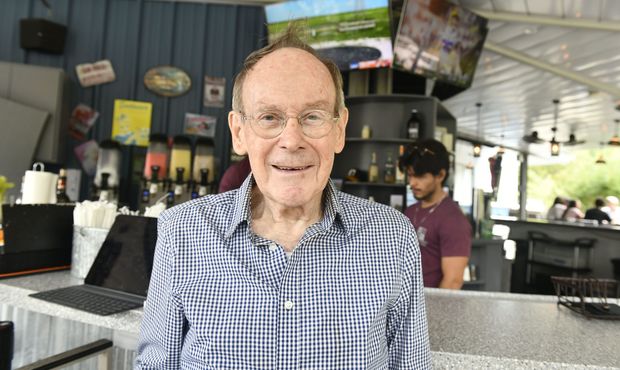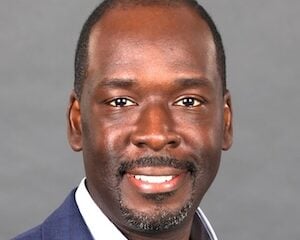Wallace Smith, radio manager who stretched ‘towards something different and bolder,’ dies at 87

Smith
Wallace “Wally” Smith, a public radio station manager who experimented with the classical music format and backed the startup of American Public Radio, died Oct. 27 at age 87.

The cause of death was congestive heart failure, according to a spokesperson for the WNET Group of New York City.
Early in his career, Smith led KUSC in Los Angeles and transformed what was a small student-run rock station in the early 1970s into an all-classical NPR station that later tried to break the mold of the traditional classical format. He led the station for more than two decades.
He was among station leaders who supported creation of American Public Radio, a precursor of Public Radio International, as an alternative source of national programming. Through APR, Minnesota Public Radio put A Prairie Home Companion and other programs into national distribution.
Smith “was one of the real lions of the early days of public radio, and his enthusiasm just made an enormous difference in terms of what the vision was for public radio,” Bill Kling, founder and former president and CEO of MPR and APM, told Current.
“He understood how important it was to broaden and diversify the sources of programming,” Kling said.
Smith was someone “with substantial success who was willing to risk it to experiment towards something different and bolder,” said Tom Thomas, Station Resource Group co-founder and former CEO. At KUSC, Smith took a big risk in 1989 with his concept for a “new sound of classical music.”
On its website, KUSC describes the new sound as a “breezy, eclectic format” designed for “the changing social landscape of Los Angeles.”
It was “not unlike some of what’s happening in public radio right now, to build a more diverse audience and a more diverse sound around the classical music space,” Thomas said. “It was very daring and experimental … but not so successful.”
The format failed to attract new listeners. KUSC lost most of its core classical audience, according to a historical account of KUSC’s first 50 years. It returned to a more traditional classical format in 1996, and Smith later resigned.
“Public radio was and is a better thing both for Wally Smith’s successes, but also for the failures where he was willing to take on something that others were not,” Thomas said.
‘Bringing fresh ideas’
For the second act of his public radio career, Smith managed a public radio station in Southampton, N.Y. He navigated two ownership transitions to maintain the 88.3 FM frequency on Long Island for public radio.
In 2009, as GM of WLIU, he set up a nonprofit to buy the station from licensee Long Island University. When the deal cleared the FCC, the station began broadcasting under the call letters WPPB.
Smith managed the station until 2020, when the WNET Group of New York City acquired the license. The station’s call letters changed again, to WLIW, and Smith became GM emeritus.
“The WLIW-FM family is saddened by Wally’s passing,” Diane Masciale, VP and GM of WLIW, said in a statement. “We are inspired by the impact he had on the East End and we will keep his memory alive as we continue to build connections in the community through the medium he loved.”
In a statement, WNET Group President Neal Shapiro said Smith’s “leadership created a strong foundation for NPR on Long Island. We will honor his legacy with our continued work.”
During his tenure at KUSC, Smith served on the boards of several public radio organizations. He was a member of the NPR board during its financial crisis in the early ’80s. Smith was among the station managers who helped found SRG, according to Thomas.
Kling recalled that Smith served on the early committees that advised CPB on building the Public Radio Satellite System.
“Wally was the kind of person that people enjoyed having on a board,” Thomas said. “He believed in civil dialogue and being thoughtful before acting, being respectful of management, but being willing to challenge things before saying ‘yes,’ and bringing fresh ideas to the table.”
“He was a charming guy and always wanting to help,” Kling said. “… It’s a great loss not to have that kind of thinking available as a mentor to new people as they enter the industry.”







The wisdom gained from many by the experiments and risks Smith was willing to take, are so valuable.
Wally Smith hired me as Chief Operating Officer of KUSC in 1984. In addition to his enormous impact on public radio nationwide, he was an inspiring example of leadership within an organization. He had the gift of motivating his staff by believing in the potential of every single individual on his team. He also forged relationships with the leaders of top arts organizations such as the Philharmonic and the then-nascent Opera, a crucial step in making KUSC a major player in the arts world of Southern California. His charm and impish sense of humor also made him a delight to work with. I’ll never forget him.